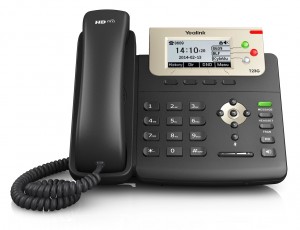Telling a lie is hard work, and often you can hear the effort.
Are they telling you the truth? It’s said you can make a pretty good judgment call when you’re face to face with someone. Studies have shown that a person is being dishonest if they look up to the right as they’re speaking. Alas, further studies concluded this is only true if you’re right-handed. Even more studies showed that you can train yourself not to look up to the right when you tell a lie once you become aware of the tendency.
Even if all of this is true, it’s not going to help you if you’re on a phone call and you can’t see the person you’re talking to. Are there audio cues that can help? Here are 6 suggestions that might be useful in making a judgment call about your caller.
1. Throat clearing
Telling a lie is hard work for most of us. It can cause actual physical changes. The stress of an untruthful response can cause a near-instant rerouting of moisture to our skin. It’s an evolutionary throwback from our fight-or-flight days, when sensing danger meant we might need to flee. Perspiration kept us cool while we ran.
Moisture usually present in your throat suddenly disappears for that reason if you aren’t a skillful liar. You’ll likely have to clear your throat before you can get the lie past your lips.
The same may hold true if you can actually hear someone’s hard swallow on the phone before they respond.
2. Convoluted responses
Direct questions usually get answers just as concise. You may have a legitimate reason to be doubtful if someone you’re talking to on the phone gives a response that’s more along the lines of trying to convince you than providing an answer to your question.
This possibility increases if they follow their response with any kind of defensive language, such as, “What did you mean by asking me that?” Or, “I’m not really concerned if my answer isn’t what you wanted to hear.”
3. Ums and Wells
Some people generously sprinkle their conversational responses with, “um” or “you know.” Few people use the word “Well” with that same frequency—especially if it’s used to preface a response.
This can be evident if you ask someone a question that only requires a yes or no answer. If they instead start off with, “Well…” and especially if there’s a pause afterwards, it’s often a clear cue that they want to prepare you for an answer they believe differs from what you expect.
Fabricating an acceptable answer can take a bit of extra time. You can buy a few seconds by filling them with “um” or other filler words. This can be a warning sign of dishonesty, though the person could also be couching a complex answer.
4. Information overload
People who tell lies often try to make them sound more convincing by including unnecessary information or complicated responses that have little or no relation to the question being asked. It’s an attempt to be more convincing—a misguided belief that a long answer removes suspicion.
5. Unexpected compliments
“Flattery,” as the saying goes, “will get you everywhere.” Including not being caught telling a lie. People who avoid the truth discover that it can take something as simple as an unexpected compliment to derail a conversation.
You’re fortunate if someone tries this tactic because it’s obvious. The compliment—instead of an answer or response—will seem out of place and make you wonder what it has to do with anything. That is, of course, unless you fall for the flattery and forget that you never got an answer.
6. Hostility
People who lie successfully develop strategies to confuse you or change the subject. Few distractions work better than unexpected hostility. Amiability is the default mode for most of us. We’ll often lose our train of thought when we come up against an angry or hostile response to a question.
There are clear physical signs of lying, but that’s not going to help you in a phone conversation.
Unless you have VoIP and you set up a video call. Then you could look for things like jaw manipulation, emphatic gestures, backward head moment, and touching the base of their neck. These are strong indications that someone is being less than honest.
Videoconferencing is no longer a luxury for big companies. It’s a standard component of most VoIP platforms. We can’t guarantee freedom from dishonest people, but we can guarantee affordable face-to-face communication anywhere. And, there’s no need for new hardware and add-on costs. Contact us today to learn more.






